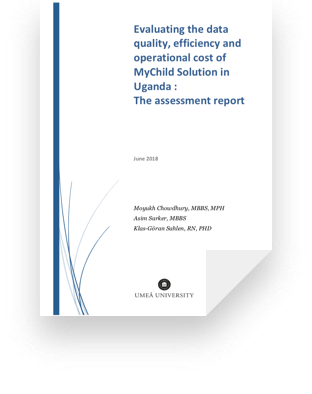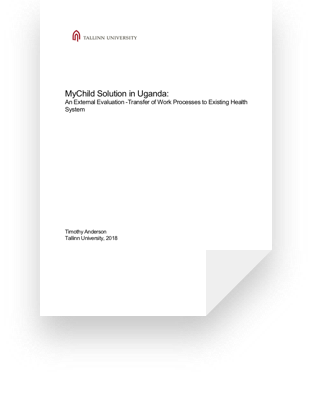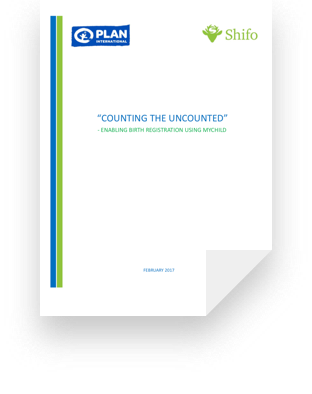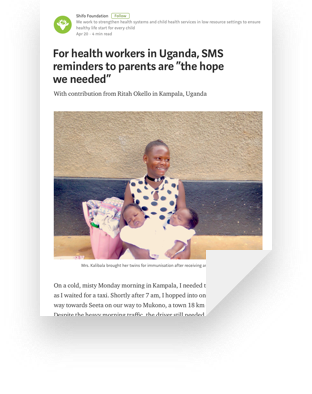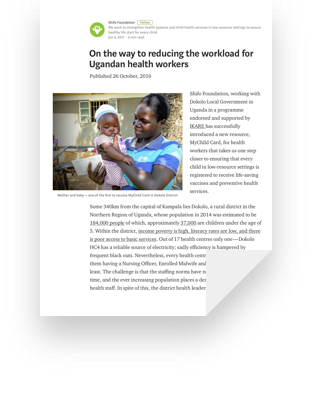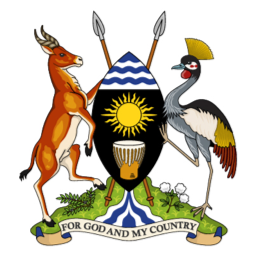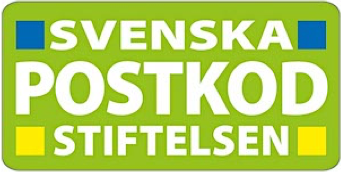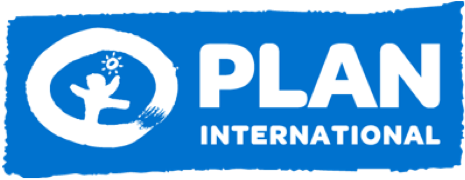* The number represents children registered using all Shifo solutions: MyChild App, MyChild Card and Smart Paper Forms
Currently, 38 health service delivery points** are using Smart Paper Technology Solution
** fixed and outreach sites
In 2013, Shifo began a collaboration with the Ministry of Health of Uganda (MoH) to implement and evaluate point-of-care electronic immunisation registry system in Mukono and Wakiso Districts. Assessments showed that point-of-care eHealth solutions are not timely in Uganda and cannot replace existing systems based on paper forms, because of lack of infrastructure in most health service delivery points (HSDP), lack of technical support structures at a district and facility levels, and high operating costs which are not sustainable for MoH. Based on lessons learned, we discovered that a Smart Paper Technology alternative offered a more sustainable and scalable solution.
Based on an external evaluation in Mukono District in 2018, MoH decided to shift/retire existing system and use exclusively Smart Paper Technology in all the health facilities in Uganda, for supporting immunisation, child growth monitoring services. This was an important decision for bringing systems change and institutionalising Smart Paper Technology Solution in Uganda.
And in 2019, MoH proposed to extend the capabilities of SPT to support entire RMNCH services, which consists of Family Planning, Antenatal, Delivery, Postnatal, Immunisation and Nutrition services.
Currently, Shifo together with MoH, WHO and Plan International have started the scale-up process, which is divided into 4 phases: 1st phase will scale-up SPT in 10 districts; 2nd phase to 20 districts; 3rd phase to 30 districts; and 4th phase to reach national coverage. We are currently seeking partnerships to support scale-up efforts.
We couldn't reach this far without the generous financial support from The Swedish Postcode Foundation, IKEA Foundation, Plan International, IKARE, and Children's Investment Fund Foundation.
The following data use interventions are integrated across the health care chain.
At the community level, families with children receive SMS messages one day before their visit reminding them about their due date to visit the facility.
Health workers receive their key performance indicators to help them know their performance and improve.
Decision-makers and planners at municipality levels review the performance of each health facility using the integrated dashboard.
External evaluation results
Data quality assessment based on WHO's data quality review toolkit indicated that data completeness, timeliness, and internal consistency was 100% and that data recording error was between 0.9-3.8%.
With Smart Paper Technology Solution, health workers spend less time on all stages of data management tasks with the biggest reduction in post-session data administration - 96%, and 49% and 85% during the service delivery.
Cost analysis showed that, when considering the monetary value of administration time reduction for frontline health workers over the course of five years, the Smart Paper Technology Solution would save around 2,072,752 USD compared to printing the existing HMIS forms. When the administration time was excluded from the analysis, the HMIS forms cost less (349,247 USD) compared with the Smart Paper Technology Solution (383,111 USD).
84% of processes essential to managing the intervention have been transferred to the existing health system structure. In most cases where these processes have been transferred, they have been performed in a way that is both accurate and sustainable. Remaining processes are planned to be fully transferred when the solution is scaled up at the national level.
Based on the results of external evaluations, we are working with our partners to scale up the Smart Paper Technology Solution to more districts.
